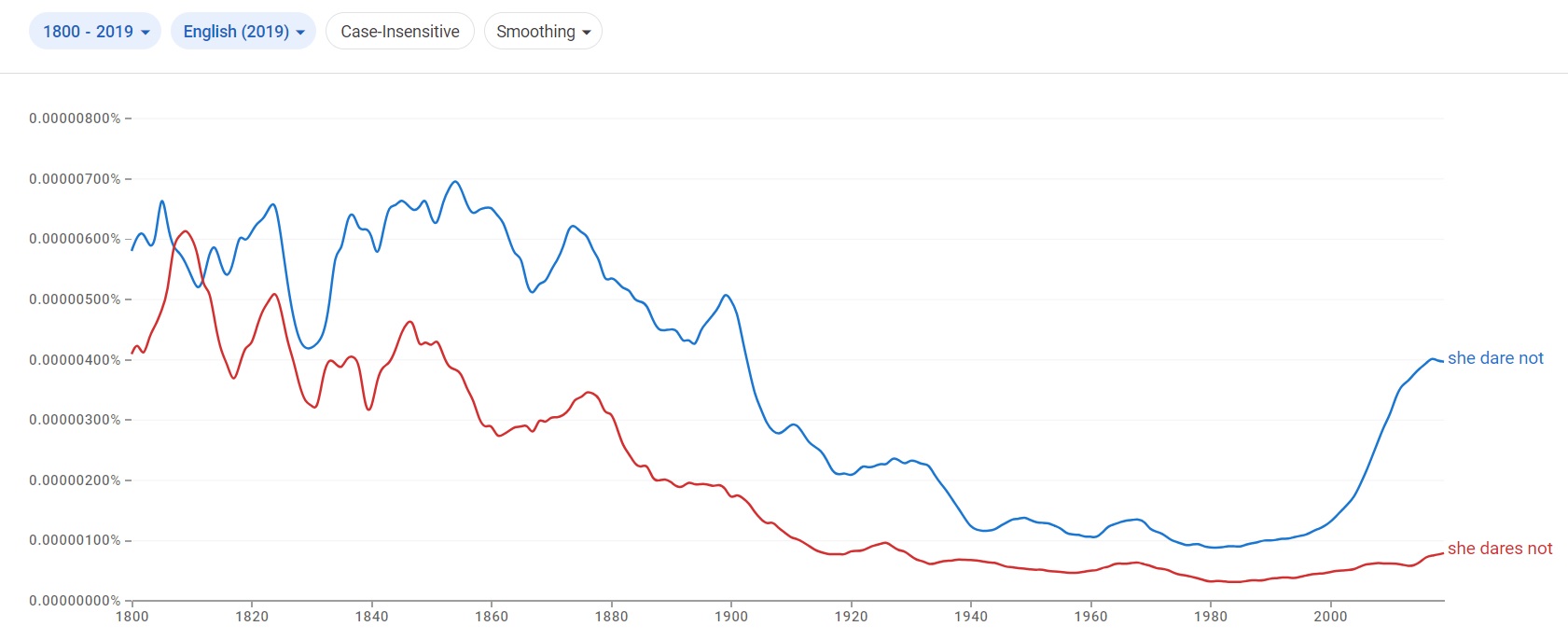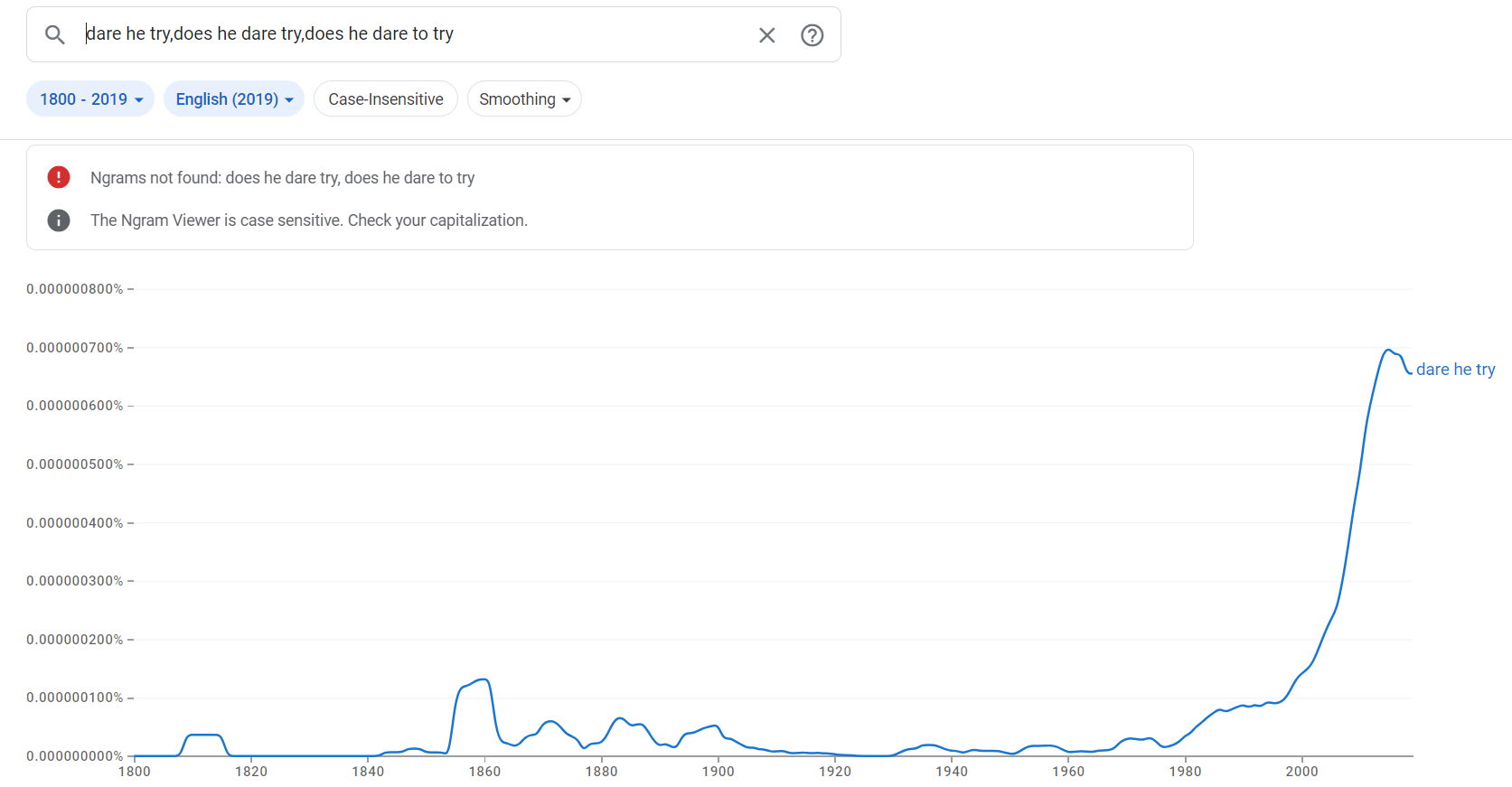Many sources say that the word "dare" is or can be a modal verb. Collins Dictionary classifies it as a semi-modal (along with the word "need"). The distinguishing characteristic of a modal is that it isn't inflected - i.e. no -s in the 3rd person singular.
The "semi-modal" designation obviously applies to the word "need", since you can see it functioning as either a main verb or a modal:
Bob needs to improve his resume. (main)
Until then, Bob need not apply. (modal)
Until then, Bob needs not apply. (definitely incorrect)
But, does this really apply to "dare"?
Carol dares to pet the jaguar. (main)
Carol dare not ride on the crocodile. (supposed to be modal, but just sounds wrong to me)
Carol dares not ride on the crocodile. (sounds fine to me, but what is it? Another main verb, it seems like. Then, instead of "ride" being the main verb in the sentence, it would just be the "bare infinitive" without "to.")
Dropping the 3rd person singular ending on "dare" just doesn't sound right to me, even though the textbooks say that it should. Is there a current or recent change in usage that has/is taken/taking place? Or do I just have it wrong for this specific word? Maybe I'm just "projecting" the main-verb meaning onto the modal and incorrectly conjugating the modal. After all, other modals like "may" and "can" don't have an equivalent main verb to cause confusion, so I'd never say something like "Alice mays know the answer." But then, why don't I make the same mistake with the other semi-modal "need" as I do for "dare"?
I would be interested to see the Ngrams results for "dare [X]" vs. "dares [X]" in the 3rd person singular form, from anyone who is proficient in using that tool, in addition to your own personal experience. It would also be interesting to see if any sources can be found which take the opposite position (i.e. that "dare" can only ever be a main verb, not a modal).


